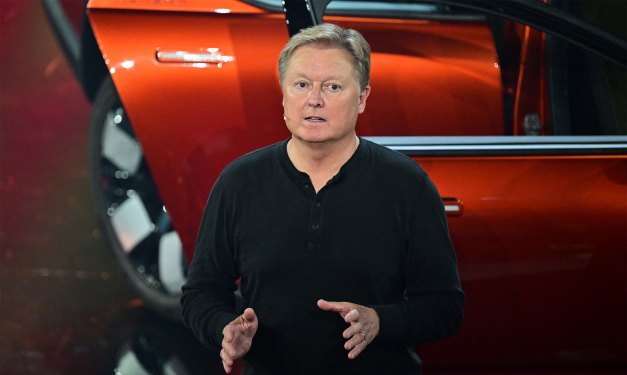Henrik Fisker, the founder of the failed EV startup Fisker Inc., and his wife Geeta quietly wound down a private charitable foundation they established in late 2021. The foundation was originally intended to incubate innovation in healthcare, education, sustainability, mobility, and other causes that support the planet and improve the lives of people and animals.
A tax filing submitted to the Internal Revenue Service in December 2024, six months after Fisker Inc. went bankrupt, was marked as the foundation’s final return. This filing became public earlier this year. Known as The Geeta & Henrik Fisker Foundation, it ultimately distributed only about $100,000 in grants during its three-year existence. Henrik Fisker did not respond to messages seeking comment.
The brief existence of the Fiskers’ foundation is another example of how the boom of electric vehicle startups in the 2020s, many of which went public through special purpose acquisition company (SPAC) mergers, fueled a period of wide-eyed optimism. For instance, when Rivian went public via a traditional IPO in 2021, it announced its own foundation, funded with 1% of the company’s equity. That stake was worth approximately $643 million at one point but eventually shrank to under $100 million. The Rivian Foundation remains active, having given out its first $10 million in grants last year and another $2.2 million in donations so far in 2025.
The Fiskers created their foundation in late 2021, according to IRS filings, about one year after their company went public by merging with a SPAC. They transferred 229,000 shares of company stock to the nonprofit in December of that year, which were collectively worth around $4 million at the time of the donation. The couple also contributed approximately $5,000 in cash that first year. Geeta Gupta Fisker was Fisker Inc.’s chief financial and chief operating officer.
The company did not announce the establishment of the foundation until February 14, 2022. While the press release touted the $4 million figure, by that point Fisker’s stock price had fallen enough that the value of the nonprofit’s stake had already sunk to around $2.7 million. The foundation did not make any grants in its first fiscal year. When that fiscal year ended on September 30, 2022, the value of the shares had fallen further to approximately $1.7 million.
Fisker’s stock price continued to decline as the company began production of its electric SUV in late 2022, started deliveries in mid-2023, and struggled to sell the flawed vehicle. These challenges apparently limited the foundation’s scope. In the foundation’s 2022 fiscal year, which ended on September 30, 2023, it made just one grant worth $92,287 to a JP Morgan Charitable Gift Fund. The Fiskers contributed only $9,500 in cash to the foundation that year, meaning the shares, whose total value had sunk again to around $1.4 million, were nearly its only assets.
The most recent filing, which closes out the nonprofit, shows just one grant in the foundation’s final year. The Fiskers contributed another $1,988 to the same JP Morgan fund.
The Geeta & Henrik Fisker Foundation was not the couple’s only source of charity, though details about their other giving are scarce. The 2022 press release notes that the Fiskers supported various causes, including education and healthcare projects, since founding the EV startup in 2016. The release also states that the Fiskers donated around $1.9 million worth of company stock in December 2021 to a donor-advised fund (DAF). That donation came from the Fiskers’ personal trust, not from their foundation, and neither the press release nor the SEC filing specified which DAF received the shares.
Donor-advised funds are a somewhat controversial tool for philanthropic giving. While donors can still dictate where the funds ultimately go, that information does not have to be revealed to the public. Donating stock to a DAF allows the contributor to deduct the value of that stock from their taxes, even if the stock’s value later sinks. Furthermore, DAFs can hold onto that money for an indefinite amount of time. It is therefore impossible to know whether the DAF that received the $1.9 million in Fisker shares made any grants before or after the value of those shares collapsed.

